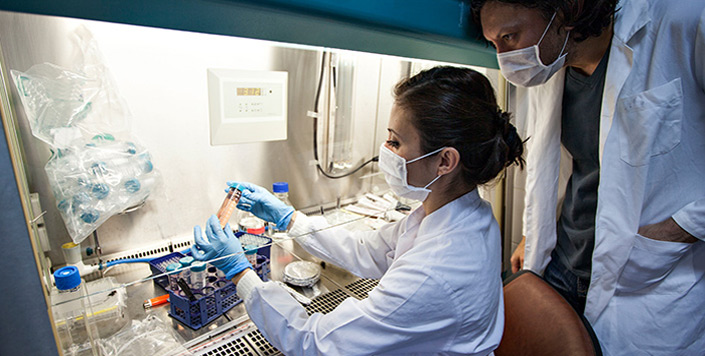
School of Medicine Publications and Presentations
Document Type
Article
Publication Date
10-23-2019
Abstract
Cellular senescence is one of the prevailing issues in cancer therapeutics that promotes cancer relapse, chemoresistance, and recurrence. Patients undergoing persistent chemotherapy often develop drug-induced senescence. Docetaxel, an FDA-approved treatment for prostate cancer, is known to induce cellular senescence which often limits the overall survival of patients. Strategic therapies that counter the cellular and drug-induced senescence are an unmet clinical need. Towards this an effort was made to develop a novel therapeutic strategy that targets and removes senescent cells from the tumors, we developed a nanoformulation of tannic acid−docetaxel self-assemblies (DSAs). The construction of DSAs was confirmed through particle size measurements, spectroscopy, thermal, and biocompatibility studies. This formulation exhibited enhanced in vitro therapeutic activity in various biological functional assays with respect to native docetaxel treatments. Microarray and immunoblot analysis results demonstrated that DSAs exposure selectively deregulated senescence associated TGFβR1/FOXO1/p21 signaling. Decrease in β-galactosidase staining further suggested reversion of drug-induced senescence after DSAs exposure. Additionally, DSAs induced profound cell death by activation of apoptotic signaling through bypassing senescence. Furthermore, in vivo and ex vivo imaging analysis demonstrated the tumor targeting behavior of DSAs in mice bearing PC-3 xenograft tumors. The antisenescence and anticancer activity of DSAs was further shown in vivo by inhibiting TGFβR1 proteins and regressing tumor growth through apoptotic induction in the PC-3 xenograft mouse model. Overall, DSAs exhibited such advanced features due to a natural compound in the formulation as a matrix/binder for docetaxel. Overall, DSAs showed superior tumor targeting and improved cellular internalization, promoting docetaxel efficacy. These findings may have great implications in prostate cancer therapy.
Recommended Citation
Nagesh, P. K. B., Chowdhury, P., Hatami, E., Kumari, S., Kashyap, V. K., Tripathi, M. K., Wagh, S., Meibohm, B., Chauhan, S. C., Jaggi, M., & Yallapu, M. M. (2019). Cross-Linked Polyphenol-Based Drug Nano-Self-Assemblies Engineered to Blockade Prostate Cancer Senescence. ACS applied materials & interfaces, 11(42), 38537–38554. https://doi.org/10.1021/acsami.9b14738
Publication Title
ACS applied materials & interfaces
DOI
10.1021/acsami.9b14738
Academic Level
faculty
Mentor/PI Department
Immunology and Microbiology


Comments
Copyright notice